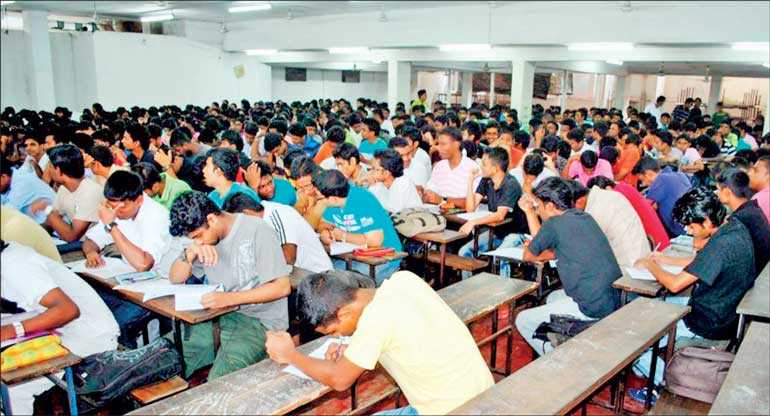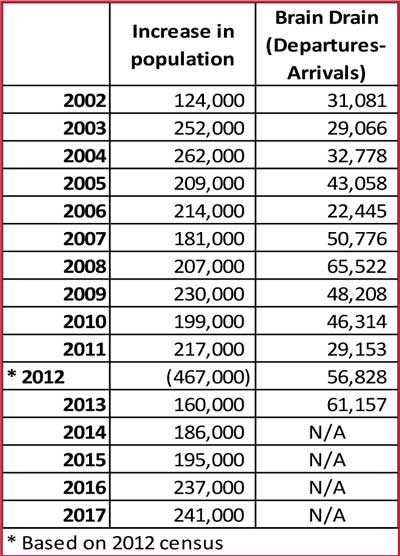Sunday Dec 21, 2025
Sunday Dec 21, 2025
Wednesday, 20 February 2019 00:00 - - {{hitsCtrl.values.hits}}

It was interesting to note that the ‘Sri Lankan Entrepreneur of the Year’ was awarded to a higher education  institute. This was even more interesting as I recalled what one of my colleagues asked me recently: “When I did A/Ls 30 years ago I had to pay Rs. 20 per month for a mass tuition class. Today my son goes for a mass tuition class and the fee is Rs. 2,000 per month. When his son goes for a mass class, say in another 30 years, would he have to pay Rs. 200,000 per month?”
institute. This was even more interesting as I recalled what one of my colleagues asked me recently: “When I did A/Ls 30 years ago I had to pay Rs. 20 per month for a mass tuition class. Today my son goes for a mass tuition class and the fee is Rs. 2,000 per month. When his son goes for a mass class, say in another 30 years, would he have to pay Rs. 200,000 per month?”
Tuition has become a lucrative profession/business
It was a shocking question indeed. Going by the above numbers, the average annual increase in tuition fees is close to 20% over a 30-year period.
This is possibly over double the annual average inflation during this period. Items such as communication (telephone charges) have witnessed a reduction in cost during this period which has lowered the overall average inflation.
It seems in the case of local education, the demand far exceeds supply and technology has not improved efficiencies, which is the reason for the sharp increase in the cost of education. Going by the amount of advertisements in all forms of media that promotes various tuition masters, it is clear that it’s a lucrative profession or a business.
Tuition industry reflects a grave inefficiency
On a positive note, it is heartening to note that the demand for education is high in Sri Lanka. Leaving that aside, there are many other inefficiencies that emerge from the above observations. 
Firstly, if the school education system works properly, should there be a need for so much of tuition, at a significant expense for parents? Secondly, wouldn’t the daily routine of our students, going from school to tuition class and getting home in the night, make it impossible to get involved in extracurricular activities? Thirdly, does this system produce individuals who are spoon-fed on school curriculum but lack common sense and innovative thinking? Fourthly, where do these students produced by the tuition factories get employed? Fifthly, with the advancements in technology (social media, YouTube) shouldn’t other modes of low cost educational support have emerged by now?
Mechanism to ensure the school time is effective
Considering the significant financial resources required from parents to finance tuition fees throughout their children’s education, it is paramount to ensure that the school system works. After all, a substantial portion of tax payer money is already spent on Government sector salaries including that of teachers. Despite that, parents having to incur high expenses in terms of tuition is a major inefficiency in the economy.
Therefore a mechanism should be implemented to monitor and evaluate whether the respective syllabuses are completed in school. Except in the case of non-availability of teachers in certain schools, in all other cases it should be accomplished.
The schools operate for 25 hours a week, which exceeds the time spent at tuition classes for students, which means the school time is adequate to complete the curriculum.
Spoon-fed and lack soft skills
Tuition should be the exception, rather than the norm, although it works the other way around in Sri Lanka. Students are required to refer text books and self-study in case they do not understand what was taught in school.
That approach develops many other useful skills and attributes in students, which is hampered due to the tendency to depend on ‘tuition’.
Therefore it is essential to develop library facilities across Sri Lanka so that students in any region have access to the relevant study resources easily. It is only the students who are still struggling to grasp subject content that should resort to tuition.
This practise has naturally trickled to professional study courses such as CIMA, where Sri Lanka boasts of the largest private tuition providers in the world. These courses are predominantly meant to be self-studied.
Further, having time to engage in extracurricular activities such as sports and music develops other essential soft skills in students which gets obstructed due to the time allocated for ‘tuition’.
The absence of above traits could be a prime reason for the unemployability of students. The private sector laments that despite the high number of vacancies, it is not possible to fill vacancies as most candidates do not possess the required skill set.
Do our tuition factories boost other economies?
While Sri Lanka’s population growth is around 200,000 p.a., the number that emigrates from Sri Lanka could be estimated around 50,000 (based on data from 2007-2013 as data is not available thereafter). The population growth number could be inflated as the two previous census in 2001 and 2012 resulted in a substantial decline in the population.
Therefore the proportion of emigration compared to the growth in population could be even higher.
This poses the question whether the education factory in Sri Lanka provides labour for other countries – Australia, Canada, Middle East, etc.
The brain drain is a significant economic problem for Sri Lanka although not discussed sufficiently. The unavailability of data may even suggest that the emigration is even higher in recent years.
Entrepreneurship should develop in niche spaces
It is surprising why the education support system has not developed and become more efficient by using technology. Tools such as YouTube could have been utilised to reduce the need for tuition and the entailing costs for parents. It is an area that should be addressed by the Government, if entrepreneurs do not emerge in that space.
The need to redirect to more strategic sectors
It is commendable that individuals find self-employment by providing tuition.
However this shows the unavailability of more lucrative opportunities for those individuals.
If multiple industries are developed sufficiently, these individuals would have got employed in those sectors and would have contributed to increase foreign currency earnings and economic activity in Sri Lanka.
Therefore the focus should be to develop such industries and absorb these individuals to such sectors.
While the entrepreneurial spirit should be commended, the Government should provide guidance regarding the sectors that should attract entrepreneurs by providing the relevant infrastructure, tax incentives and even subsidies (if necessary) for such sectors.
Entrepreneurs that develop due to inefficiencies in the system may get eliminated once those inefficiencies are rectified. Therefore the corrective measures should be implemented gradually over time so that these entrepreneurs are re-directed to sectors that are more strategic for the country.
(The writers could be contacted via [email protected].)